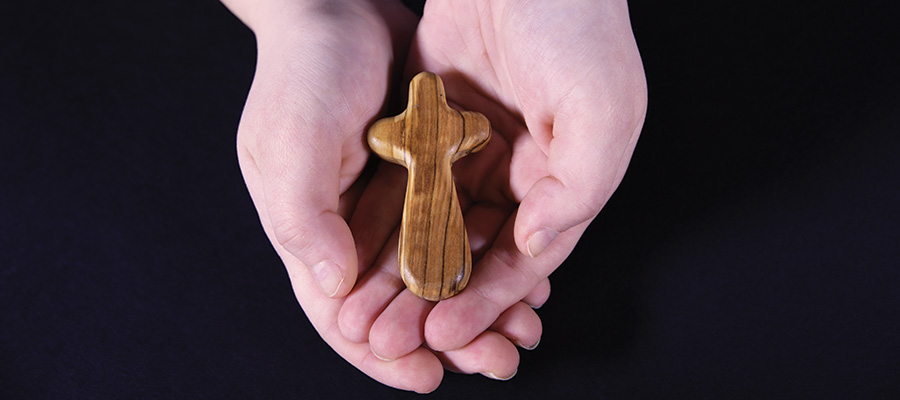Caring for the youngest minds
Wooden crosses, a symbol of Christ’s enduring love, are given to grieving children by UD counselors who are part of the Empowering Children with Hope and Opportunity program. The crosses are one sign of ECHO’s work as it supports Catholic school students and their families through mental health counseling, social work, and social and emotional education.
Cindy Hammond received that support when she became a mother of three overnight after a call from a social worker. “When my kids first came to me, they were going through a lot. They had a lot of trauma,” Hammond said.

After she enrolled her children in a local Catholic school, the school’s ECHO counselor worked with the children to improve their mental health and academic engagement. Their sessions included learning about their emotions, healthy conflict strategies and coping skills.
“It is really a blessing to see them learning and being open to the techniques being taught and actually utilizing them,” Hammond said. “It is beautiful to witness.”
ECHO services help remove non-academic barriers to learning for more than 1,000 Catholic school children in the Greater Miami Valley. Non-academic barriers to learning include poverty, homelessness and unresolved mental health needs.
Said ECHO Executive Director Rhonda Mercs, “Who cares about math if you don’t know where you’re going to eat or sleep?”
“Who cares about math if you don’t know where you’re going to eat or sleep?”
Mercs shared that ECHO is an arm of the University reaching out to the community and supporting Catholic education at its earliest stages. The program is an extension of the Marianist whole-person approach to education, and it is an example of how the University is supporting the needs of the Archdiocese of Cincinnati, its churches, schools and individuals.
UD graduate students support ECHO and the work of its staff.
“Catholic Social Teaching talks about helping those who are in very vulnerable places in their lives, whether that be financially, emotionally or physically ... which is very Marianist,” said Saidee Purcell, a graduate student in clinical mental health counseling who is fulfilling her internship requirement with ECHO. “And I do see that within our agency, within our schools. That’s what we do; we help people who need it and bring those resources
to them.”
Unlike other mental health counseling services, ECHO counselors are on-site at partner schools. Parents and guardians who otherwise might not have transportation or paid time off of work do not have to take their children out of school to receive therapy, saving them time and resources.
This is important for Hammond, whose children had frequent outbursts and trouble in school. Prior to ECHO, she had to leave work early to address their mental health needs. Now, her children walk down the hallway during school to get the care they need to be engaged students and healthy children. And that is a relief to Hammond.
“As a parent, especially a single parent with kids going through so much, there’s only so much you can do,” Hammond said. “You’re not a miracle worker — I’m definitely not — so having the help was just really, truly a blessing.”